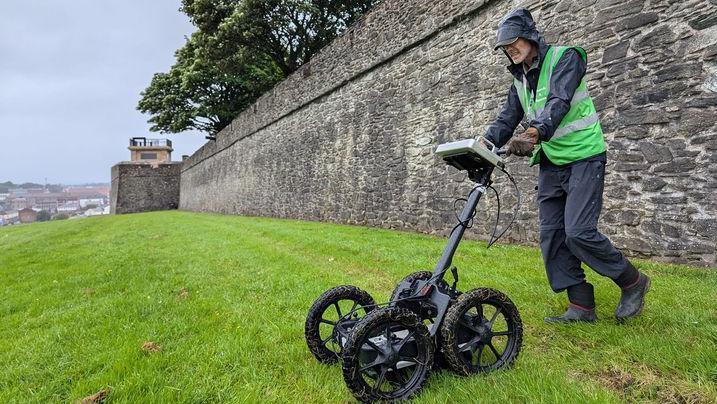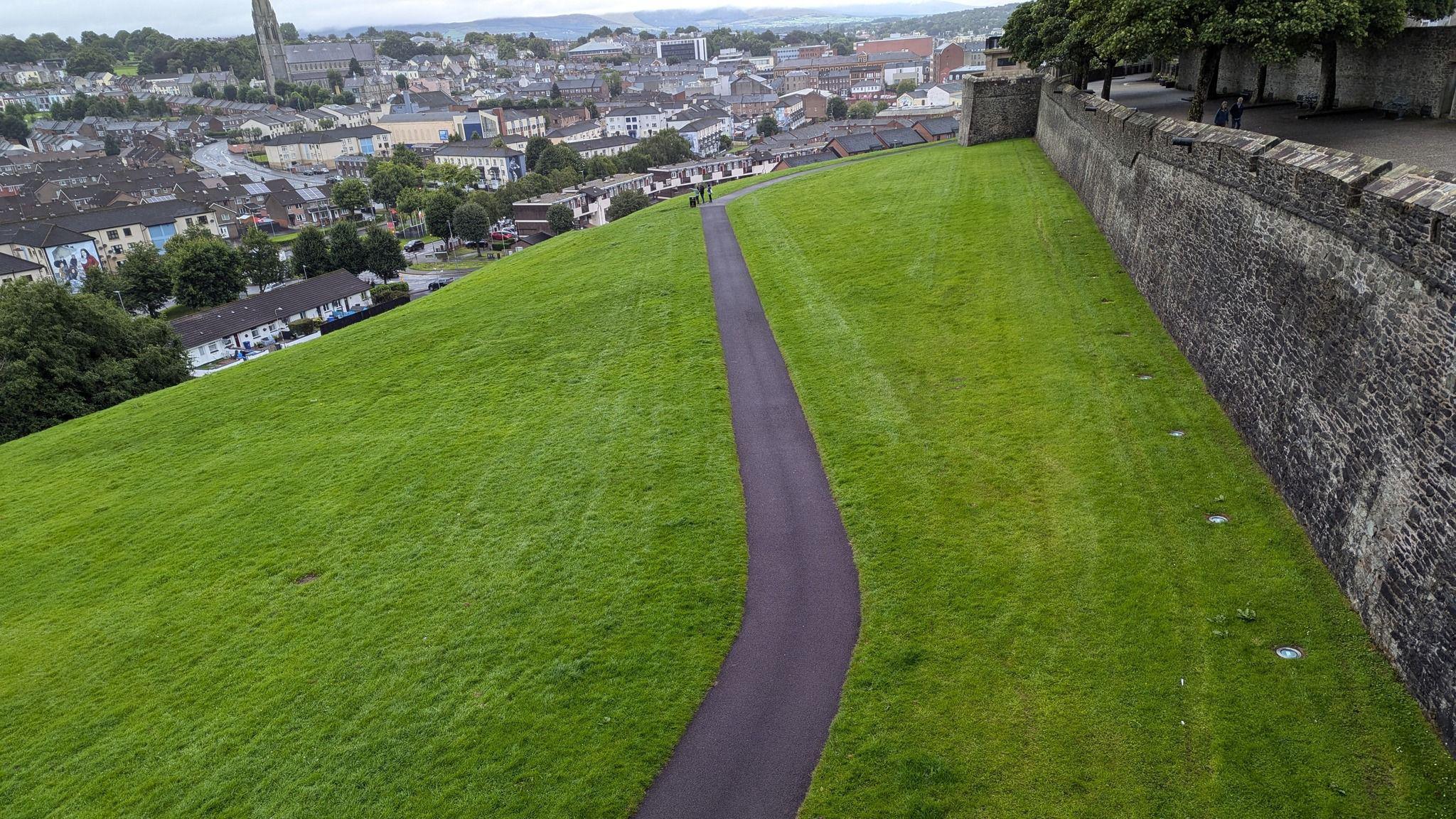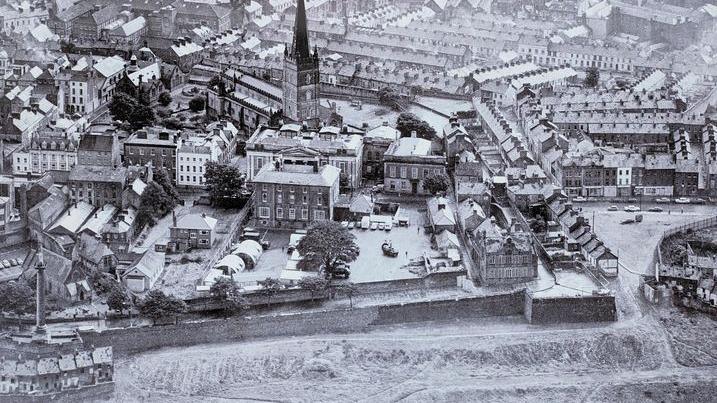First archaeological dig in a decade begins in Derry

Queen's University experts have scanned the site in recent weeks
- Published
The first archaeological dig in Londonderry city centre for more than a decade begins on Wednesday at a site close to the city's historic walls.
The week-long excavation—the brainchild of the Friends of Derry’s Walls (FDW)—is led by a team of experts from Queen’s University Belfast's Centre for Community Archaeology (CCA).
The CCA team will explore a grass bank at the foot of the walls, thought to be the site of a 17th-century defensive ditch.
Pupils from local schools and members of the public will also get involved in the excavation.

Previous research suggests the dig site was once the site of a defensive ditch dating back hundreds of years
Niall McCaughan, from FDW, said the dig would hopefully “add another layer to the story of one of the island of Ireland’s most historic cities".
“It is very exciting, there's been interest locally, nationally, and internationally,” he told BBC News NI.
Derry was the first planned city in Ireland and the last walled city to be built in Europe, and its walls, built between 1613 and 1619, are Northern Ireland's largest state monument.
Derry's 17th Century fortifications were never breached, withstanding several sieges including one in 1689, which lasted 105 days.
The grass bank, which is the area of interest, is at the foot of the walls and overlooks the city’s Bogside.
Pre-dig preparation over recent weeks has seen the area scanned with ground-penetrating radar.
The project has been supported by the National Lottery Heritage Fund.
Rare prehistoric find shines light on Neolithic life
- Published5 February 2023
Archaeologists to unearth Siege secrets
- Published21 September 2018
What is found in the ditch could prove a fascinating insight into times gone by in Derry, Mr McCaughan said.
“You might think it’s just a ditch around the walls, but of course that was another defensive mechanism,” he said.
“When we first talked about excavating the ditch, Queen’s head archaeologist Colm Donnelly said to me, ‘The great thing about ditches is that is where people threw all their rubbish'.
“We are going to get all sorts of 17th, 18th, and 19th century debris—that’s a really exciting thing."

The area to be excavated was also once the site of Nailors Row
The dig site was also, in more recent times, the site of Nailors Row, a city centre street demolished in the 1970s.
That more recent history will also be explored, Mr McCaughan said.
“Fifty years have passed now since the time of Nailors Row, in that time this aspect too has become history,” he said.
In 2013, the last time an archaeological dig took place in Derry’s city centre, a number of skeletons, thought to date back to the 17th Century, were uncovered at a site within the city’s walls.
The dig that begins on Wednesday will feature in the next series of BBC Two's Digging for Britain.